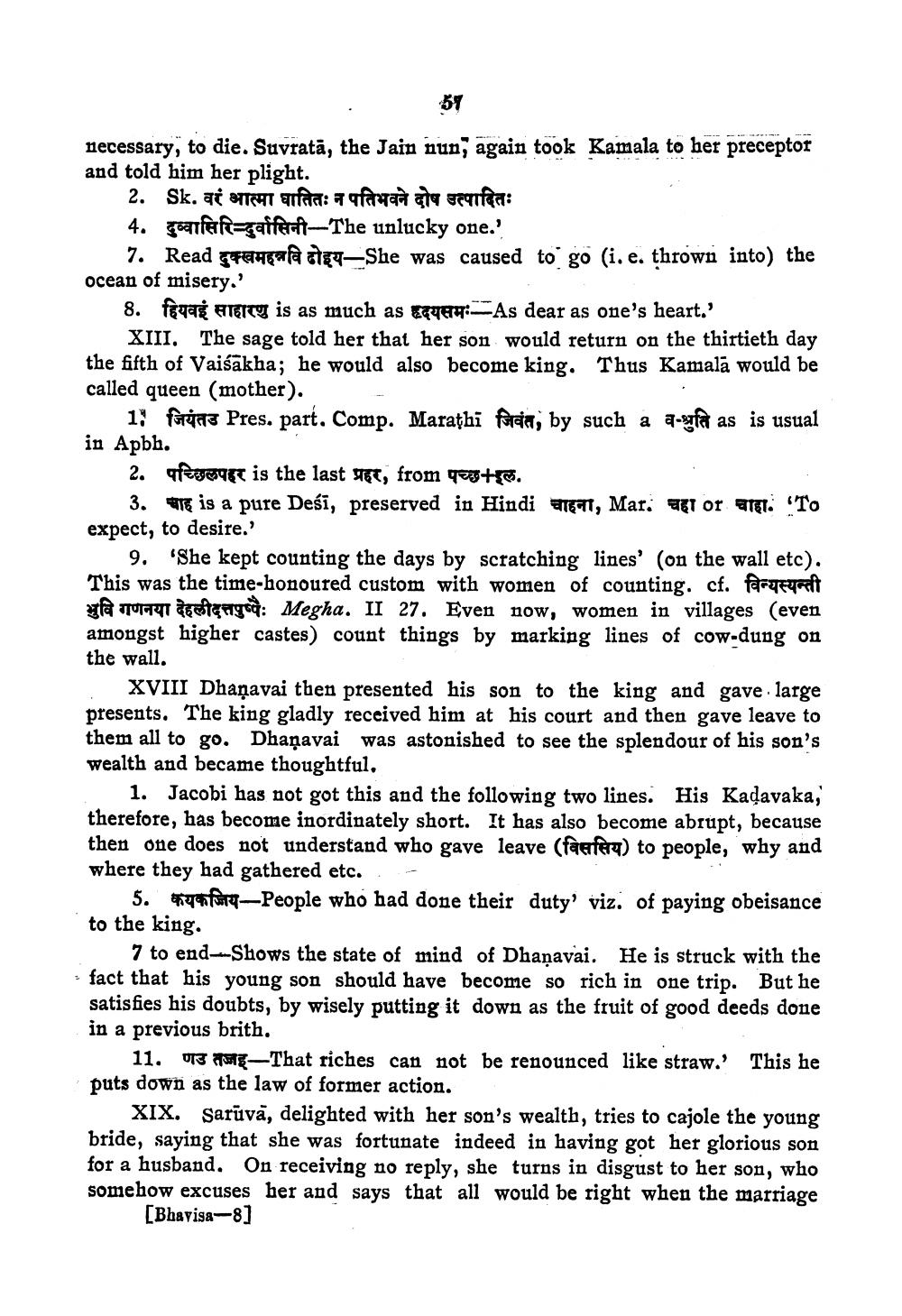________________
57
necessary, to die. Suvrata, the Jain nun, again took Kamala to her preceptor and told him her plight.
2. Sk. वरं आत्मा घातितः न पतिभवने दोष उत्पादितः
4. ganfeft=gaffeft-The unlucky one.'
7. Read a g-She was caused to go (i. e. thrown into) the ocean of misery.'
8. हियवई साहारण is as much as हृदयसमः -- As dear as one's heart.'
XIII. The sage told her that her son would return on the thirtieth day the fifth of Vaisakha; he would also become king. Thus Kamala would be called queen (mother).
17 जियंत Pres. part. Comp. Marathi जिवंत, by such a व श्रुति as is usual in Apbh.
2. पच्छिलपहर is the last प्रहर, from पच्छ+इल.
3. चाह is a pure Desi, preserved in Hindi चाहना, Mar. चहा or चाहा: 'To expect, to desire.'
9. 'She kept counting the days by scratching lines' (on the wall etc). This was the time-honoured custom with women of counting. cf. faqet ylà nunqı àɛdiçag: Megha. II 27. Even now, women in villages (even amongst higher castes) count things by marking lines of cow-dung on the wall.
XVIII Dhanavai then presented his son to the king and gave large presents. The king gladly received him at his court and then gave leave to them all to go. Dhanavai was astonished to see the splendour of his son's wealth and became thoughtful.
1. Jacobi has not got this and the following two lines. His Kadavaka, therefore, has become inordinately short. It has also become abrupt, because then one does not understand who gave leave (faufer) to people, why and where they had gathered etc.
People who had done their duty' viz. of paying obeisance
5.
to the king.
7 to end-Shows the state of mind of Dhanavai. He is struck with the fact that his young son should have become so rich in one trip. But he satisfies his doubts, by wisely putting it down as the fruit of good deeds done in a previous brith.
11.
-That riches can not be renounced like straw.' This he puts down as the law of former action.
XIX. Saruva, delighted with her son's wealth, tries to cajole the young bride, saying that she was fortunate indeed in having got her glorious son for a husband. On receiving no reply, she turns in disgust to her son, who somehow excuses her and says that all would be right when the marriage
[Bhavisa-8]




